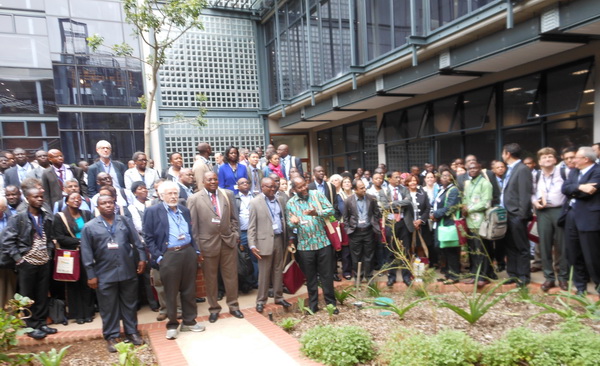Partnerships must by mutually beneficial - Vice Chancellor
 The Vice Chancellor of the Wits University in South Africa, Prof Adam Habib has called for equitable partnership between the western and developing world.
The Vice Chancellor of the Wits University in South Africa, Prof Adam Habib has called for equitable partnership between the western and developing world.
Advertisement
He said donors should not dictate to their recipients because they are providing funds, rather they should build a fair, mutually beneficial partnership.
Prof Habib made the call at the opening of the 12th INDEPTH Scientific Conference taking place in Johannesburg, South Africa.
The four-day conference is on the theme: “The contribution of INDEPTH Health and Demographic Surveillance sites to strengthening National Health and Information Systems”. Over 250 participants including scientists, researchers, funders and young academicians are taking part in thconference.
International partnership or manipulation?
Prof Habib cited as examples of inequitable international partnership, the recent increase in western university campuses that are now established in the developing world with exorbitant fees that had to be paid in foreign currencies while using local expertise attracted from local universities, and the case of a donor providing funds for research and dictating how that research should be done.
These, he said, constitute manipulation and not international partnership because they are not for the benefit of all.
Freedom of information
Prof Habib said freedom gives one the right to make decisions and in order to make the right decisions, one must have adequate information.
“You can’t truly make right decisions without adequate information”, he said.
He said the INDEPTH network provides this fundamental right of freedom with the health and demographic information it gathers; building capacity and representing transnational partnerships which were all crucial to addressing global challenges.
He commended INDEPTH for the forum which he said will help build the capacities of participants to enable them compete in the global world.
Information and MDGs
The Statistician General of Statistics South Africa, Prof Pali Lehohla, said data census, administrative civil registration and vital statistics are a priority in meeting the African Union (AU) Integration Agenda.
He said INDEPTH’s longitudinal data was essential because unlike census which was cross-sectional, INDEPTH’s data gives more insight which enhances work on vital statistics.
“INDEPTH’s data are the pathways through which civil registration can be used to understand what the challenges are” he said.
Prof Lehohla said there was the need for more information to plan better to meet the MDGs and post MDGs.
INDEPTH
The Executive Director of the INDEPTH Network, Prof Osman Sankoh, said through INDEPTH’s global network, the organisation is developing the requisite information base, providing high quality longitudinal data about the lives of people and how development policies and programmes impact on those lives.
Background
INDEPTH is an international network of demographic research institutions that provides health and demographic data to enable developing countries set health priorities based on evidence. It currently has 48 sites in 20 countries in Africa, Asia and Oceania.
In Ghana the INDEPTH member centres are the Navrongo, Kintampo and Dodowa Health Research Centres of the Ghana Health Service.
From Rebecca Kwei, Johannesburg, South Africa
Graphic.com.gh/Ghana